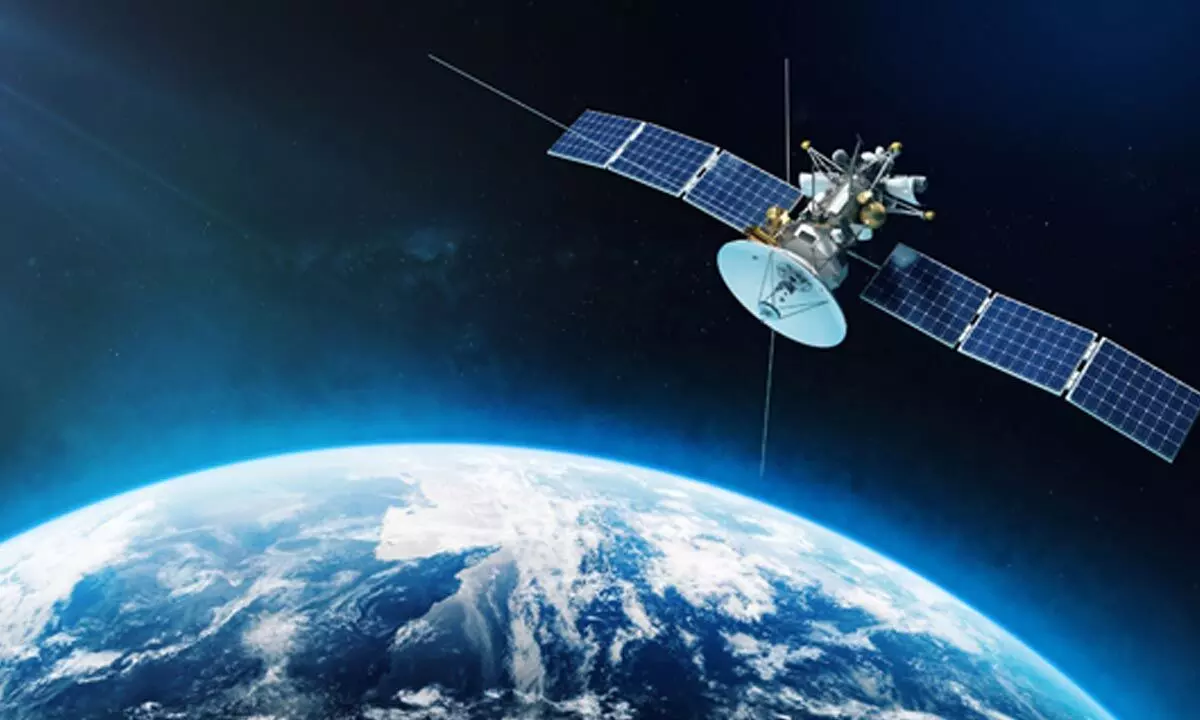Sky is not limit for space economy
After resounding success of Chandrayaan and Mangalyaan, Indian Space Research Organisation (ISRO) is currently working towards launching Gaganyaan, India’s first manned spaceflight mission; PLI schemes for semiconductor, electronics and wide spectrum of hardware will be galvanised by space economy
image for illustrative purpose

- IN-SPACe, a single-window nodal agency works between ISRO and the Non-Government Private Entities (NGPEs)
- Accelerating participation of NGPEs in India's space exploration activities
- N-SPACe is a balanced playing field for pvt entities in India's space exploration
Mumbai: Space economy is a new growing sector in the Indian economy. It can be gauged by the fact that Finance Minister Nirmala Sitharaman, for the first time, had mentioned about it in her Budget speech earlier this year. A host of activities has taken place in the recent past in the sector which will help the sector leapfrog.
Following the resounding success of ambitious projects such as the Chandrayaan and Mangalyaan, the Indian space programme is ready for the next step. Leading the nation's efforts since 1969, the Indian Space Research Organisation (ISRO) is currently working towards launching Gaganyaan - India's first manned spaceflight mission.
The IN-SPACe (Indian National Space Promotion and Authorization Center) is a single-window nodal agency that works between ISRO and the Non-Government Private Entities (NGPEs), accelerating the participation of NGPEs in India's space exploration activities.
IN-SPACe, the head office of which will be unveiled by Prime Minister Narendra Modi on June 10 in Ahmedabad, will provide a balanced playing field for private entities in India's space exploration through an encouraging regulatory environment for optimum utilisation of the nation's space assets. The information in this connection was given by Pawan Goenka, Chairman of IN-SPACe, through his Tweet.
IN-SPACe, approved by the Union Cabinet in June 2020, will be the nodal agency that will allow space activities and use of Department of Space-owned facilities by non-government private entities and ensure greater private participation in the sector. The IN-SPACe initiative is a step to the future. The agency aims to transform India's space activities from a 'supply-driven' model to a 'demand-driven' model. It aims to pave the way for upcoming prospects in launch vehicle and satellite production, launch services as well as space-based services.
Talking to Bizz Buzz, Dr Chaitanya Giri, Consultant, Research and Information System for Developing Countries (Autonomous body of Ministry of External Affairs), says: "India's aspiration for $10-trillion economy by 2035 passes through digital economy and the foundation of digital economy lies in the space economy. So, space economy is the motherlode of both the aspirations."
The PLI schemes for semiconductor, electronics and wide spectrum of hardware will be galvanised by space economy, he added. There are a number of startups that have entered into the field of space. They include 'Sky Root', 'Digantara', 'Manastu', 'Kawa' and 'Pixxel'.
In what can be termed as a revolution in the field of satellite communication in the country, Nelco, India's leading and fastest growing satellite communication service provider and Telesat, a leading global satellite operator, have recently conducted their first in-orbit demonstration of high-speed broadband connectivity in India with Telesat's Phase-1 Low Earth Orbit (LEO) satellite, marking yet another milestone for bringing next-generation satellite communication technologies to the country.
The testing campaign was conducted on April 25-29 at Nelco's Mahape teleport and leveraged an 85-cm Intellian parabolic antenna to connect to Telesat's Phase 1 LEO satellite.
Telesat Lightspeed is an advanced, enterprise-class satellite network that leverages Telesat's innovative architecture and global Ka-band priority spectrum rights. The Telesat Light speed satellites incorporate next-generation technologies, including data processing in space, advanced phased array antennas, reconfigurable beams and optical inter-satellite links for a fully interconnected global mesh network in space.
Speaking on this new development, PJ Nath, MD & CEO of NELCO, said: "This is truly an exciting time for the Satcom industry and Nelco. With this successful test, we are confident of bringing Telesat Lightspeed LEO satellite communication services to India. This will help in addressing the need of the market for fibre-like connectivity in the remotest parts of the country with high reliability and flexibility of satellite communication."
"Designed for secure, high throughput, low-latency connectivity, Telesat Lightspeed will bring unsurpassed flexibility and capabilities for enterprise applications and extend the reach of terrestrial networks throughout India," stated Glenn Katz, Telesat's Chief Commercial Officer.
It was in February when the digital service provider Jio Platforms Ltd (JPL) joined hands with SES, a leading global satellite-based content connectivity solutions provider, to deliver high-performance satellite-based broadband services across India.
The JV, known as Jio Space Technology Ltd (JSPL) will deliver the next generation scalable and affordable broadband services in India leveraging satellite technology. JPL and SES will own 51 per cent and 49 per cent equity stake in the joint venture respectively. The joint venture will use multi-orbit space networks that are a combination of geostationary (GEO) and medium earth orbit (MEO) satellite constellations capable of delivering multi-gigabit links and capacity to enterprises, mobile backhaul and retail customers across the length and breadth of India and neighbouring regions.
The joint venture will be the vehicle for providing SES's satellite data and connectivity services in India, except for certain international aeronautical and maritime customers who may be served by SES.
Akash Ambani, Director of Jio, said: "While we continue to expand our fibre-based connectivity and FTTH business and invest in 5G, this new joint venture with SES will further accelerate the growth of multi-gigabit broadband. We are excited about this new journey combining our massive reach and customer base with SES's innovative leadership and expertise in the satellite industry."

